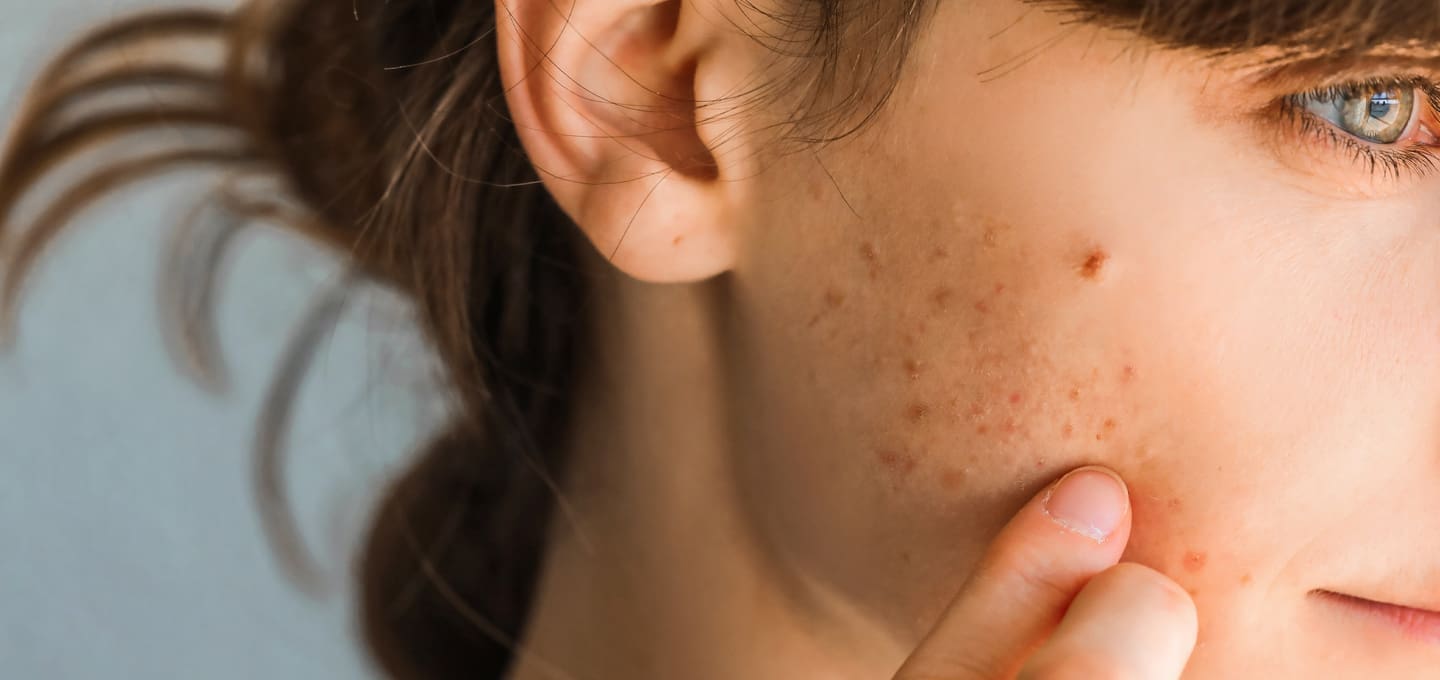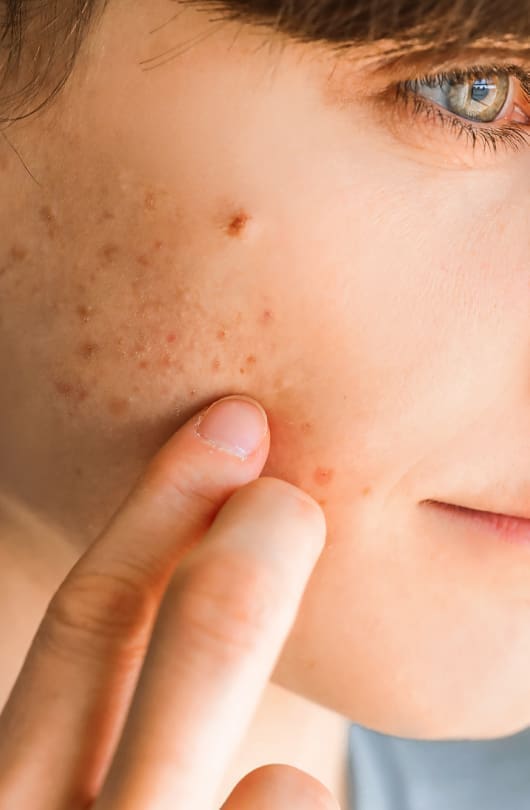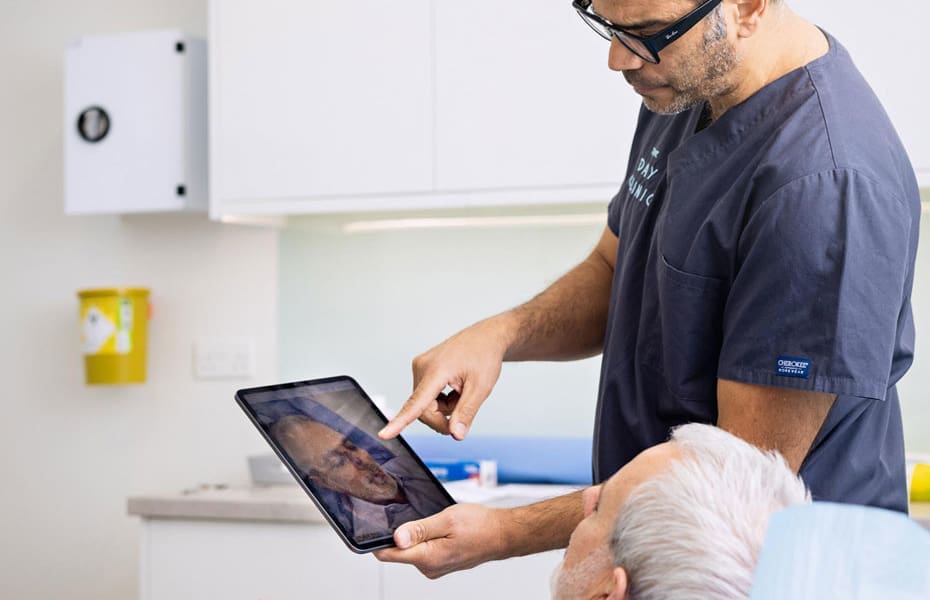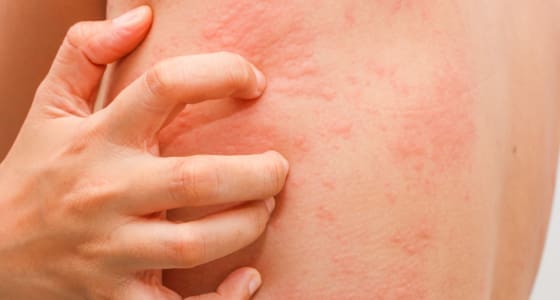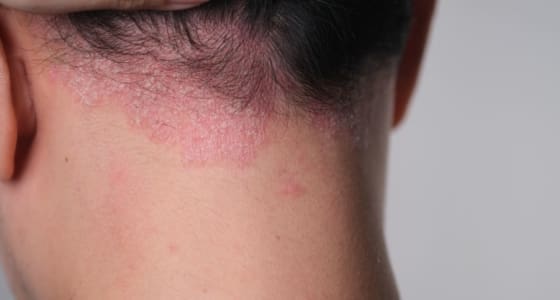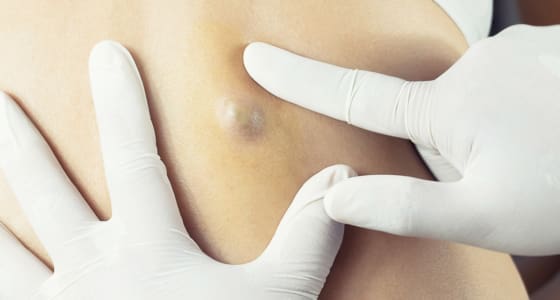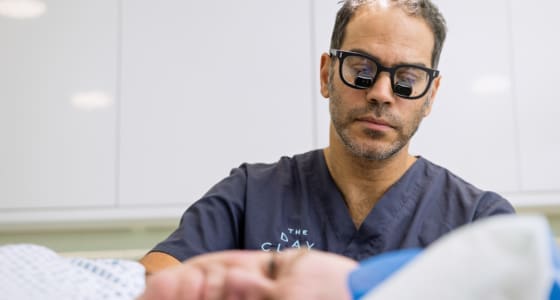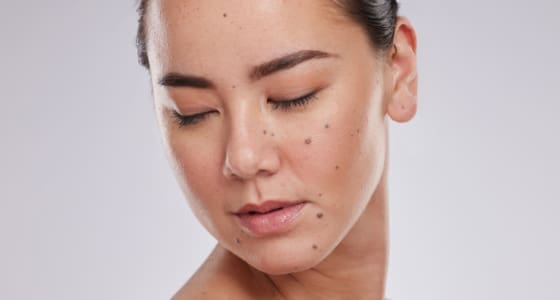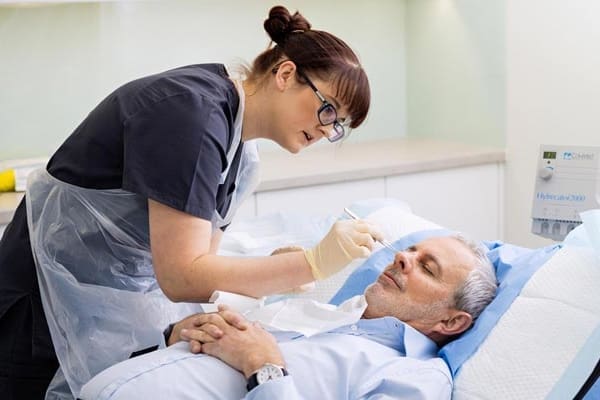The main cause of acne is excess oil production from the ‘sebaceous’ glands in the skin which produces an oily substance called ‘sebum’. Excess sebum can mix with dead skin cells and block the hair follicles. This creates an environment where bacteria, specifically ‘propionbacterium’ acne, can thrive. Bacteria on the skin can contribute to inflammation and the formation of acne lesions. Blocked hair follicles can also be a breeding ground for bacteria and this prompts the immune system to trigger inflammation.
Inflammation leads to redness, swelling, and the formation of spots. Acne can be triggered by a number of factors including hormonal changes, excess oil production, bacteria, certain medications, and genetic factors.
Puberty often plays a significant role in the development of acne because a type of hormone called ‘androgens’ can stimulate the sebaceous glands to produce more oil. As the levels of this hormone is higher in boys, they tend to suffer more severe acne and for longer duration during puberty. Girls and women can be affected due to hormonal fluctuations around their period.
Acute adult acne can affect both men and women. It can also be triggered by a number of factors, such as hormone changes, certain medications such as ‘corticosteroids’ or ‘lithium’, skincare or makeup products that clog the pores or stress.
The impact of acne can extend beyond the physical symptoms and can have a detrimental impact on self-esteem and well-being. While it may not be possible to eliminate acne completely, there are several treatment options which can be very effective in managing and controlling breakouts.
During your dermatology consultation, your dermatologist will examine your skin and have a close look the affected areas to determine the type and severity of your acne. Your specialist will devise a tailored treatment plan for treating your acne; this may include topical treatments creams, gels, or lotions and/or oral medications such as antibiotics or hormonal therapy. Your specialist will also provide information on good skincare practices, tailored to your skin type, including cleansing techniques, suitable products, and lifestyle modifications which will help you to manage and prevent acne breakouts. Depending on the severity of your acne, your consultant may schedule a follow-up appointment to monitor your progress and adjust the treatment plan if necessary.
